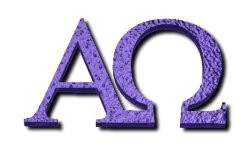
G D His Existence And His Nature -Rev. R. Garigou-Lagrange, O.P.
THE ONE END TO WHICH ALL FIVE PROOFS CONVERGE
We have pointed out that the result of each of these five demonstrations is to move us to admit the existence of a divine attribute which can be predicated only of the self-subsisting Being, as St. Thomas explicitly proves.
Ia, q. 3, a. 4.
The article referred to serves the double purpose of pointing out to us what is the terminus in the ascending process of reason, which rises from sensible things until it reaches the supreme cause, and it is also the principle in the descending or synthetic process, by which reason deduces the divine attributes of the one who is Being itself, and judges of all things by the highest cause. These two inverse methods are called by St. Thomas, respectively, via inventionis and via judicii.
Ia, q. 79, a. 9.
In fact, as we have seen, the prime and universal mover must be his own action (suum agere), and, therefore, his own existence (suum esse), and the same must be said of the first uncaused cause, of the necessary being, of the sovereignly perfect being, and of the ruler of the universe. Thus the supreme truth of Christian philosophy, or the fundamental truth in the synthetical order (in via judicii) is that in God alone essence and existence are identical. God is "He who is" (Ex. III, 14).
Such are the five metaphysical proofs for the existence of God, to which all others can be easily reduced. If we study them carefully, we see, contrary to the assertions of modern Agnostics, that the existence of God, who is transcendental or distinct from the world, cannot be denied without denying the principle of causality, namely, that "every being which is mobile, contingent, composite, imperfect, and relative, is caused, and in its final analysis requires a primary and immovable being, one which is absolutely simple, perfect, and intelligent." Now, the principle of causality cannot be denied or doubted without denying or doubting the principle of contradiction, for "a contingent and uncaused being" would exist neither of itself, nor by reason of another, and consequently, could not be distinguished from nothingness, since it would exist without a sufficient raison d'être, either intrinsic or extrinsic. This would mean the subversion of the principle of contradiction, that "being is not non-being," and of the principle of identity, that "being is being, non-being is non-being," and human reason would be lost in absurdity.
If, on the contrary, the principle of contradiction or identity is the supreme law of reality and of our reason, then the supreme reality must indeed be the identity of essence and existence, or self-subsisting Being (ipsum esse subsistens). Thus the five ways which lead to the existence of God, unite in the opposition prevailing between the principle of identity and the changeableness and composition of the world, or the lack of identity displayed in the latter. From this opposition it is at once evident that the world is contingent and depends upon the immutable and pre-eminently simple Being whose name, as given to Moses, "I am who am," denotes absolute identity.
Hence, the ancient philosophers used to say that our intellect knows God in the mirror of sensible things, by means of the broken ray of light reflected from rational principles. The principle of identity or of contradiction shows the contingency of this mirror and is reflected in the image of the principle of causality, which manifests to us the existence of the supreme Being.
It is, therefore, absolutely necessary to choose between the existence of the true God, transcendental or distinct from the world, and the Hegelian denial of the principle of contradiction as the law of reality. In other words, we must choose between Theism and Atheistic Evolutionism, which latter maintains that the more perfect comes from the less perfect, and that contradictories are identified in a universal process of becoming. Thus we see in absolute Evolutionism an incontestable proof by the reductio ad absurdum of the existence of the true and transcendental God, since this existence cannot be denied without at the same time denying the validity of the principle of contradiction, and without positing a fundamental absurdity at the root of all things.
This radical absurdity is expressed in the first of the propositions condemned in the Syllabus of Pius IX, which reads as follows: "There is no supreme Being, who is all-wise, ruler of the universe, and distinct from it; God is identical with the nature of things, and is, therefore, subject to changes; God really becomes or begins to be in man and in the world, and all things are God and have the same substance with Him; thus God and the world, spirit and matter, necessity and liberty, truth and falsehood, goodness and evil, justice and injustice are all identified in the one same and only reality."
Denzinger, Enchiridion, n. 1701.
To avoid this manifest absurdity, we must affirm the existence of God, who, according to the Vatican Council, "being one, sole, absolutely simple
See the fourth and fifth proofs of St. Thomas for the existence of God.
and immutable
See the first, second, and third proofs of St. Thomas.
spiritual substance, is to be declared as really and essentially distinct from the world, of supreme beatitude in and from Himself, and ineffably exalted above all things which exist or can be conceived beside Himself."
Denzinger, Enchiridion, n. 1782.

 Support Site Improvements
Support Site Improvements